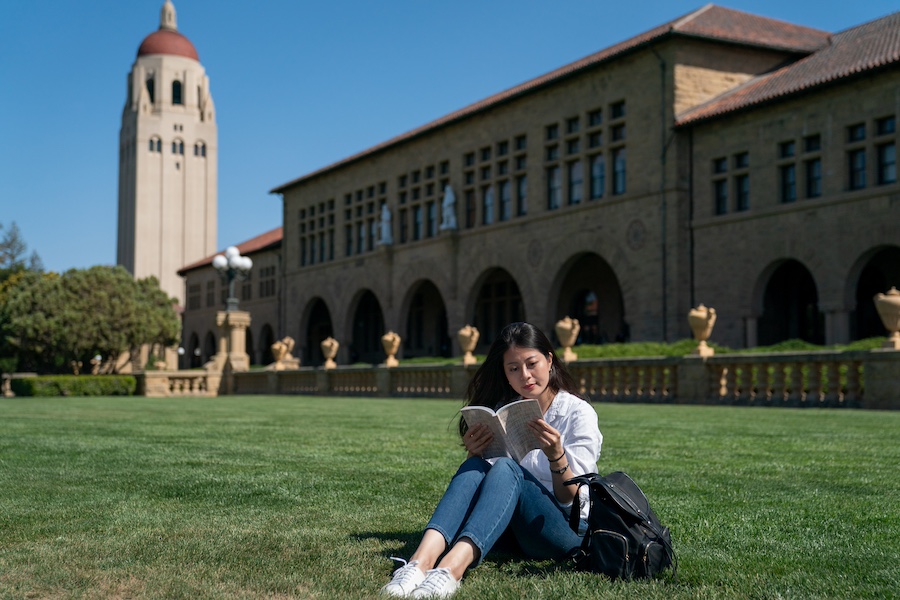Interviews are an often overlooked part of the college application process, as they often come after your application is already submitted. Many colleges don’t care about interviews at all, while some use them as an integral part of their decision making process for choosing which students to admit.
In this article, we’re going to go over the different kinds of interviews, from informational to mandatory, then give you a full list of top college’s interview policies and procedures. Aswith all other aspects of admissions, the better you understand something, the less stress it will cause you. Let’s get started!
The Different Types of College Interviews
College interviews come in various flavors, depending on who is giving them, and what the purpose is in the admissions process. The first question is who is giving the interview; these are the options:
- Alumni interviews: This is a graduate of the school in question, who is able to speak about their time there and answer questions about it.
- Student interviews: This is a current student at the school who works in the admissions office. They can speak directly to what the school and culture is like.
- Admissions officer interviews: These are rarest, as admissions officers have many demands on their time.
In addition, these are the kinds of interviews schools generally offer:
- Informational interviews: These are just so that you can learn some more about the school, and whether it is a good fit for you. These are usually alumni or student interviews.
- Evaluative interviews: These are so the admissions committee gets a sense of who you are beyond your essays. This is either done directly if an admissions officer is interviewing you, or via a report written by your interviewer and submitted to the admissions office.
Interviews can be both evaluative and informative at the same time. Note that evaluative interviews are rarely the deciding factor, instead, they are simply another data point for admissions officers to use. The interviewer will generally write a brief report on the interview, often covering specific questions from admissions officers, which will be added to your file.
Finally, interviews can be offered as part of an in-person audition process. Note that these are only done for majors which require an audition, generally the performing arts. Note all programs which require an audition will also require an interview.
Which Top Schools Offer Interviews?
So now that we’ve covered the different kinds of interviews, which top colleges offer them?
| College | Interviews | Other Notes |
| Boston College | No | |
| Boston University | No | |
| Brandeis | Student interviews | Offered in-person or virtually |
| Brown | No | While Brown does not offer an interview, you can complete an optional video introduction in its place |
| Caltech | No | |
| Carnegie Mellon | No | |
| Case Western Reserve University | No | |
| Columbia | No | They used to offer alumni interviews, but discontinued them in 2023 |
| Cornell | No | |
| Dartmouth | Yes | Alumni interviews are offered by invitation only. These are optional. |
| Duke | Yes | Alumni interviews are offered by invitation only. |
| Emory | No | |
| Georgetown | Required | Requirement is waived if there are no alumni available to interview you. |
| Georgia Tech | No | |
| Harvard | Yes | Optional alumni interviews, by invitation only |
| Johns Hopkins | No | |
| MIT | Yes | Alumni interviews |
| New York University | No | |
| Northeastern | No | |
| Northwestern | Yes | Optional alumni interviews by invitation |
| Notre Dame | No | |
| Princeton | Yes | Optional alumni interview |
| Rice | Yes | Interviews are optional and not guaranteed, but they are recommended |
| Stanford | Yes | Optional alumni interview |
| Tufts | Yes | You may request an optional alumni interview |
| Tulane | No | |
| UC Berkeley | No | |
| UCLA | No | |
| UT Austin | No | |
| University of Chicago | No | |
| University of Florida | No | |
| University of Michigan | No | |
| UNC Chapel Hill | No | |
| University of Pennsylvania | Yes | Optional alumni interview |
| University of Rochester | Yes | Optional but strongly recommended, especially for students interested in merit scholarships |
| USC | No | |
| Vanderbilt | No | |
| Wake Forest | Yes | Optional virtual interview or video submission |
| Washington University in St Louis | Yes | Optional virtual interview with a current student |
| William & Mary | Yes | Optional, only around 20% of applicants interview |
| Yale | Yes | Optional, by invitation only |
Interviews by Invitation
Due to the increasing number of applicants, many universities do not have the resources to offer an interview to everyone who applies. This means they must be somewhat selective with who gets an interview. There are different ways to do this, depending on the purpose of their interviews.
Schools which do primarily informative interviews usually make them open based on availability. If there’s an alumni member in your area conducting interviews, you will be invited to partake in one. These are limited by the number of alumni who sign up to be interviewers.
Schools which do evaluative interviews are more likely to offer an interview if there is additional information or context they need that they did not get from your application alone. In either case, getting offered an interview is not indicative of your chances of acceptance, for good or ill.
Should You Do Optional College Interviews?
Generally, yes. Optional interviews fall into two categories; those which are truly optional, and those which are only technically optional. Rice, for example, strongly prefers students to complete their interview, even though it is listed as optional.
While not all schools have such strong feelings, doing well in an evaluative interview is another data point for admissions officers to use when making a decision about your application. Since colleges only have the information that you give them, you want to furnish them with as much as possible, so that they get the full picture of who you are and what you can offer to their school.
Even non-evaluative interviews can be helpful, though they don’t impact your chances of admission one way or the other. They are a great chance to learn more about the atmosphere and culture at a school, things which are often quite hard to determine just by looking at a well-polished website. You will be spending four years at a college, so you want to make sure it is somewhere you will enjoy being.
Final Thoughts
Interviews are a minor part of college applications as a whole, but they are very important nonetheless. They are an excellent way for you and a college to get to know each other better, and you should consider taking part in one, even if a school says they’re optional. We recommend signing up for interviews early at schools which use that method, as space is limited.
We hope that this article has clarified how interviews work, and what colleges expect from them. For advice on how to prepare for your interview, see our full guide to college interviews. If you want to try a practice interview, or help with other aspects of your application, schedule a free consultation today to learn how we can make your life easier. We have a long experience guiding students through the application process, and are always happy to hear from you.








